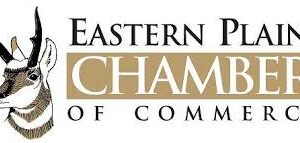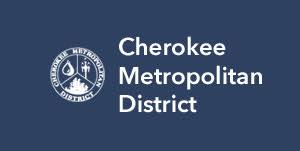The Pension Protection Act, signed into law in August 2006, contains more than 900 pages of changes and refinements to regulations regarding defined benefit plans, defined contribution plans, individual retirement accounts and other issues related to retirement planning. The act is expected to generate thousands of pages of tax code as the IRS begins implementation.Parts of the act will probably apply directly to you and your financial and tax situation. Other parts ñ especially the trade provisions and miscellany that Congress tacked on the end ñ probably wonít. Where to begin?EGTRRA made permanentSince the passage of the Economic Growth and Tax Relief Reconciliation Act of 2001, American taxpayers have wondered if the 40-odd provisions set to sunset in 2010 would indeed cease and revert contribution, deferral and catch-up limits to pre-2001 levels. Thankfully, the Pension Protection Act made most of those previsions permanent. These include contribution, deferral and catch-up limits for IRA, 401(k), 403(b), SIMPLE IRA and SIMPLE 401(k), defined contribution plans and defined benefit plans.
| Increased Contribution Limits Made Permanent |
| Plan Type | 2006 | 2007 | 2008 | 2009 | 2010 |
| 401(k)/403(b) | $15,000 | Inflation Adjusted | Inflation Adjusted | Inflation Adjusted | Inflation Adjusted |
| 401(k)/403(b) catch-up | $5,000 | Inflation Adjusted | Inflation Adjusted | Inflation Adjusted | Inflation Adjusted |
| IRA/Roth IRA | $4,000 | $4,000 | $5,000 | Inflation Adjusted | Inflation Adjusted |
| IRA/Roth IRA catch-up | $1,000 | $1,000 | $1,000 | $1,000 | $1,000 |
Traditional to Roth IRA rolloversA glitch in the Tax Act of 2001 required that funds from an employer retirement plan had to be rolled to a traditional IRA before being converted to a Roth IRA. The Pension Protection Act eliminated a step. Starting in 2008, funds from your employer retirement plan can be rolled directly to a Roth IRA ñ with, however, federal income tax due on pre-tax contributions and earnings. Once money has been moved to a Roth IRA, additional earnings accumulate tax free.The new legislation also eliminates the Roth rollover ceiling starting in 2010, which prevented a person earning over $100,000 in modified adjusted gross income from converting to a Roth. Starting in 2010, anyone ñ regardless of income ñ can convert funds from a 401(k) plan to a traditional or Roth IRA.
401(k) nonspouse beneficiariesBeneficiaries other than a spouse named on 401(k) plan documents can roll the plan funds they inherit directly to their own IRA. Prior to the change, nonspouse beneficiaries had to receive the 401(k) funds in whatever manner the plan documents prescribed, usually a lump sum distribution, creating an immediate state and federal tax burden and potentially pushing the beneficiary into a higher income tax bracket. Nonspouse beneficiaries also can be included in those for whom hardship withdrawals qualify, giving families more resources in the event of a medical or other emergency.
Automatic enrollmentAs part of the congressional effort to encourage more individual retirement savings and less reliance on government benefits like Social Security, companies may automatically enroll employees in the employer 401(k) plan, starting with a minimum default contribution of 3 percent of your gross income and increasing to a minimum of 6 percent after three years, but not to exceed 10 percent. Employers must make a matching contribution.Employees get a 90-day window to opt out by withdrawing contributions and earnings. They will owe income tax on the contributions and any earnings but will not be subject to the premature distribution penalty of 10 percent.The Employee Benefits Research Institute anticipates automatic enrollment will boost 401(k) plan participation from 66 percent to 92 percent of eligible employees.
Employer stock in defined contribution plansIf your employer is a publicly traded company, you now have the freedom to sell off any of your employerís stock that you purchased with your deferrals or after-tax contributions. You have the right to sell any stock contributed by your employer or purchased with employer contributions after three years of service. If you hold company stock in your 401(k) plan, now may be a good time to visit with a financial professional to determine if you should reallocate to avoid over-exposure.
Investment adviceIn the past, pension managers often navigated investment selection and allocation for employees. The trend toward defined-contribution plans like 401(k)s and individual retirement accounts (IRAs) as the primary vehicles for retirement saving leaves many employees responsible for guiding their own ships toward retirement. However, ERISA prohibited 401(k) plans from offering advice to participants, in effect leaving workers to fend for themselves.Under the Pension Protection Act, ERISA-covered plans can offer participants advice services through a registered investment company, registered broker-dealer, bank or insurance company acting as a fiduciary. To protect participants, any charges you pay for those services must be based on an independent third-party certified computer model and cannot vary depending on the recommendations or the investment products you choose.Advisors must disclose compensation, potential conflicts, plan investment option past performance, available services, fiduciary relationship, how participant information will be used and the fact that participants can get advice from an advisor not affiliated with the plan. Armed with that advice, you still call the shots. Advisors cannot make decisions about how much you invest, when you invest it or in what you invest it.For the exciting conclusion, please read Part 2 next month!
Colorado Comprehensive Wealth Management719-886-3377Registered Investment Advisory RepresentativeSecurities America Advisors Inc.Member NASD, SIPCFor more information, visit www.donnellservices.comColorado Comprehensive Wealth Management and Securities America Advisors Inc. are independent companies







